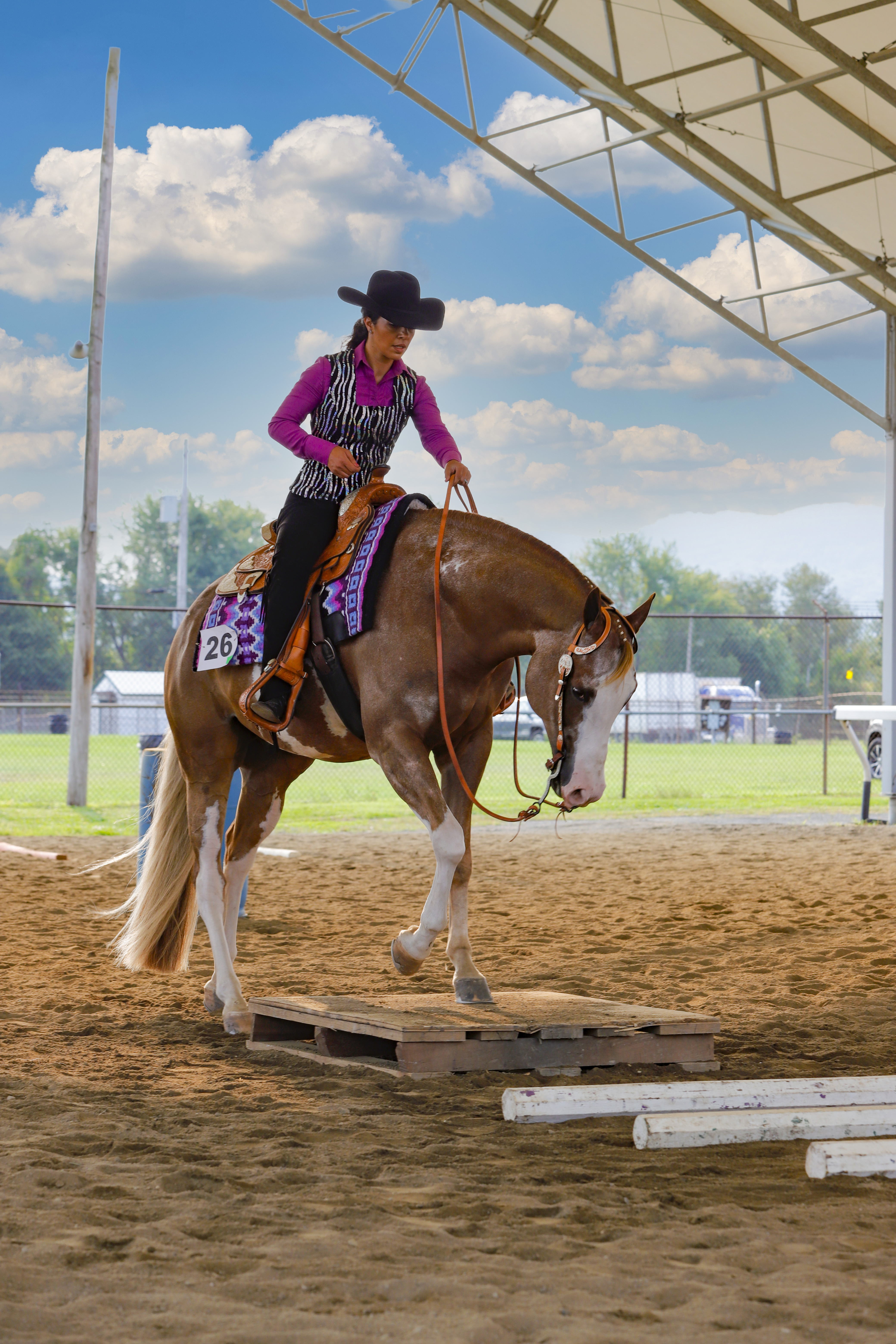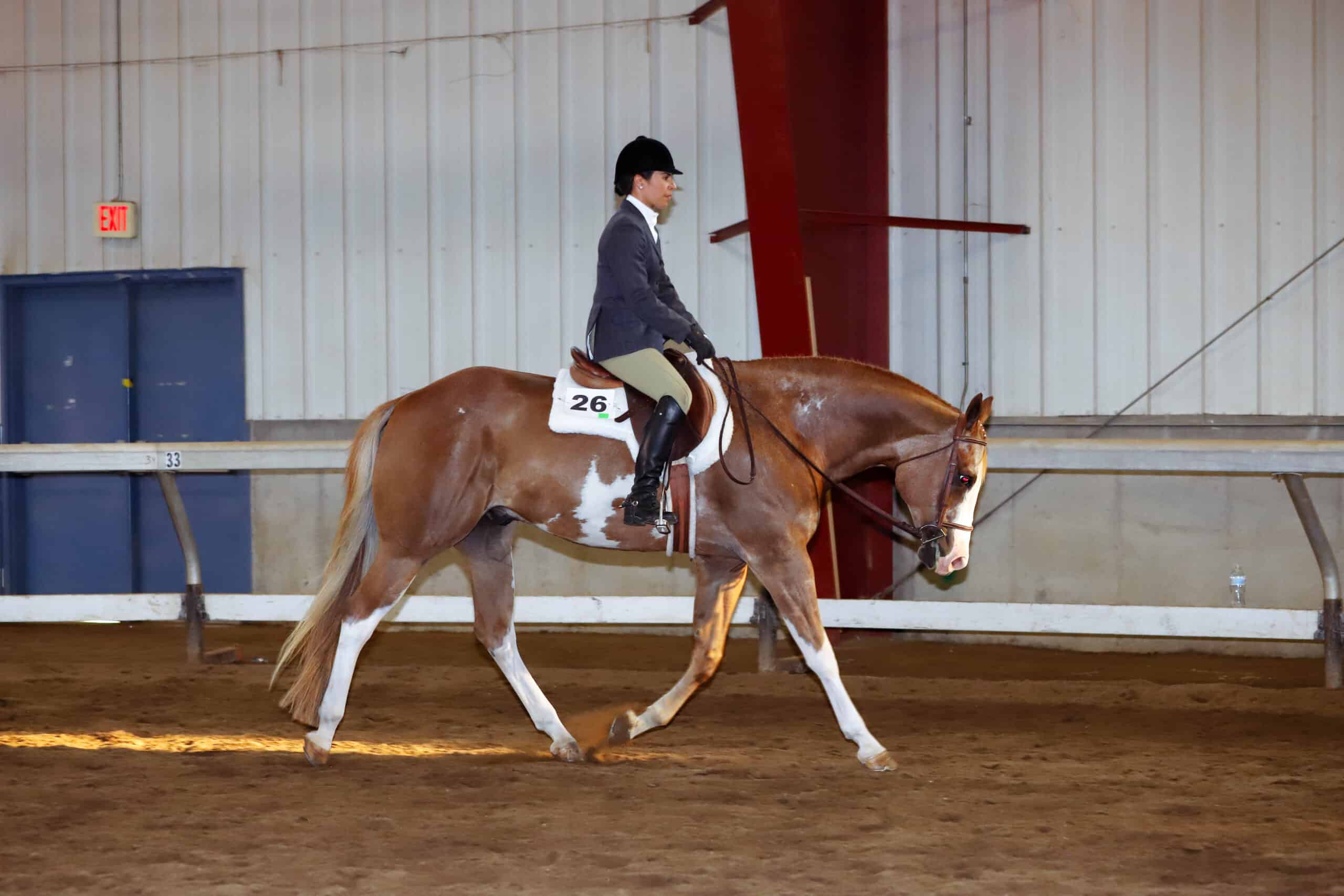Two straight up truths about horses, horses are not one size fits all and learning to ride different horses is hard. You probably already know this if you’ve been riding for any amount of time. Horses all have different personalities, react differently to various situations and come in all sizes and shapes.
So, why do you need to ride multiple horses? The short answer is, learning to ride different horses will challenge you and push you outside of your comfort zone thus creating a stronger and more confident rider.
And, just for the record, I’m not saying you should ride different horses every lesson. Sometimes when you are in the process of learning a particular skill, it helps to solidify that skill on one horse a few times in a row before changing horses.
There is a huge benefit to riding different horses on occasion and getting to know more than one horse consistently. It can take a few rides to figure out a particular horse. Now repeat that process a few times on various horses and suddenly your knowledge and skill has grown exponentially!
In this article we’ll discuss what you’ll learn from riding a variety of horses and how this will benefit you as a rider.
Riding Different Horses Will Help You Refine Your Aids
The first benefit of riding different horses is learning to ride precisely and to refine your aids. Some horses are very particular about being asked to execute a maneuver correctly. While others, like those great beginner lesson horses who have the patience of a saint, will basically read your mind.
Most good lesson programs have a variety. My mom has my gelding Beau in her program and he’s a solid citizen. He has rarely ever put a foot out of place. He’s great for beginners because my mom can give him a cue from the ground and he will respond correctly even if the rider does not ask correctly. Thus, helping riders develop a feel for different gaits even though they do not have the strength or coordination to ask correctly. Overtime, they learn to cue him independently without help from my mom.
She also has an array of other retired show horses that know their jobs well and are very broke. But broke does not equal mind reader. Learning to ride a well trained show horse means learning to ride them correctly. If you don’t ask correctly, you literally do not get anywhere. Obedient show horses do what you asked them to do, not what you think you asked them to do.
Imagine a beginner rider taking a world champion barrel race or grand prix jumper for a spin. Chances are they’d be way over horsed and couldn’t get the horse to do much of anything. It takes skill and precision to ride high level horses.
Being able to execute a cue correctly on horses that have a different feel, size, shape, stride length and training level is a challenge and takes lots of practice.
Improve Your Balance
Riding a variety of horses will also help improve your balance. Since very horse has a different feel and a different stride length it can take some getting used to. For instance, if you’re used to riding a pony with a short stride and quick feet and then hop on a big fancy dressage horse, you’re going to feel the difference. You may even get bounced right up out of the tack the first time you trot!
Learning to stay in the middle of the horse, centered and balanced without gripping, leaning, and tensing up can be quite difficult.
Test Your Ability & Identify Gaps
Trying out different horses will undoubtedly help you identify any gaps in your riding. And, most likely you’ll learn about your strengths too. You might find that you get along really well with a brand new horse because they like to be ridden the way that you ride.
Riding a new horse can be intimidating and even if you’ve ridden for many years you may have temporary amnesia and forget how to do simple things. How your skills translate from one horse to another will tell you how solid you are and what you need to work on. Maybe you are able to sit the trot well on one horse but can’t seem to find your balance or a good rhythm on another. Or maybe you need to add more leg to keep a sluggish horse moving. You may find that you learn how to improve your connection and coordination between your aids to keep a spooky horse focused and in the bridle.
Learning to get along with and even enjoy different types of horses will help expand your tool box and you’ll be more prepared for unexpected events during future rides.
Build Your Confidence
Preparedness helps to foster confidence, whether it’s at a horse show, trying a new exercise or challenging yourself in general. Riding a variety of horses with varying degrees of reactivity and sensitivity will help you learn to think on the fly. You’ll learn how to think outside the box and become creative when you need to be. And, adding all these new skills to your resume will make you a more confident and better rider.
All of a sudden that new oxer you’ve never jumped before will be less intimidating than the last time you tried a new jump. The trail course at the horse show won’t seem so overwhelming because you’ve loped poles on lots of different horses.

Learning To Be Adaptable As A Rider
At this point, I think we’ve all agreed each horse is different for a variety of reasons. And this factors into our riding in many ways. But, it teaches us one of the most crucial skills that even very accomplished riders are always trying to improve. Adaptability. Horses like to be ridden the way they like to be ridden, not the way their friend likes to be ridden.
If you have a passion for horses or a desire to become a professional rider, adaptability is key. Being able to change the intensity of your cues and your energy level along with understanding body language will help you be successful with a variety of horses.
You’ll Ride Your Own Horse Better
Maybe you own a horse now and ride all the time, you’ve probably ridden lots of other horses in the past too. So why bother riding other horses? Try taking a lesson in a different discipline or taking a lesson on another horse in your barn just to work on yourself or learn something new.
These skills will translate to your horse too! Learning to ride other horses and understand how they operate will help you understand your own horse. If you want to have a great partnership with your horse, step out of your comfort zone and take lessons on other horses. Especially if you’re struggling with something, riding other horses will help you be objective and identify the root cause. Plus, you’ll probably walk away with some ideas on how to fix the problem with your own horse.
Becoming A Well Rounded Rider
The more personality types, situations and disciplines you expose yourself to as a rider, the better you’ll be! Well rounded riders understand how to take pieces of advice or other learning experiences and file them away for future use. You never know when you’ll need to take out that knowledge and use it. Many top riders while they specialize in one discipline, have or still do cross train to help their horses succeed!
Just think about top hunter and jumper horses that spend time focusing on flat work and dressage basics. This helps improve their flexibility and fitness so they can perform their best. The same goes for riders!
I hope you found this article helpful! If you did, please share it!

